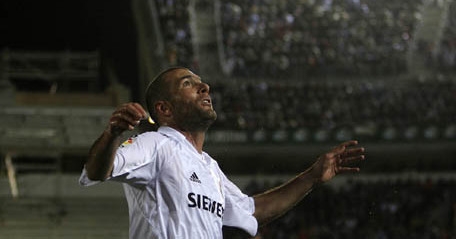
Split loyalties: Who do you root for?
MORE IN THIS SECTION
"What are you?" This is a question I received constantly while growing up as a Latino in the Midwest. A typical mestizo with amalgamated connections to multiple worlds, I struggled for many years to discover and claim a cultural identity. I don't look like the "Latino" stereotype and, during my youth, I wasn't certain whether this was good or bad.
I was born in Kansas City, Kansas, to multicultural parents with Mexican and American roots. I grew up seeing culture and nationality as a bit of a monolithic entity, but when I became an adult, I started realizing that I had, in fact, been part of a cultural fabric that was much more "quilt-like" than cut from any single cloth.
It was in the music I listened to, the food I ate, the interactions I shared with others. But most of all it was there in 1994 when the country of my birth hosted the World Cup. (As it happens, the event took place a few months after I married my wife, a native of Madrid, Spain).
There was something exciting and new about el Jogo Bonito as the Portuguese call it. The "Beautiful Game" felt addictive to me, especially in 1998 when my family and I moved to Madrid, a city that lives and dies for the sport.
Madrid has not one, not two but four professional teams, and fans there support their teams with a passion and fervor that rivals anything I've ever known here.
I came to Madrid an interested soccer rookie but developed a borderline obsessive supporter's fervor for the oft-loved and hated merengue faction, known most commonly as Real Madrid, during the four years in which they won three of their record nine UEFA Champion's League titles.
There was only one time when my Spanish friends and colleagues would stop everything they were doing and, regardless of which team they supported usually, unite to root for the same team: the World Cup. If you know anything about Spanish culture and politics, you know that to achieve this unity is absolutely not an easy feat.
Soccer can, and does, unite, and it was during my first World Cup in Spain, in 1998, that I found myself equally connected and emotionally invested in the national teams of the United States, Mexico and Spain. While 1998 wasn't a particularly good tournament for those three nations — only Mexico made it out of the group stage — I shifted my focus from the rules and regulations of the game to its geometry and the puzzle of how and why the game is played in so many different, distinct styles.

It became beautiful to me then, and it still is.
I will share one important epiphany with my American compatriots who are still puzzled by soccer: The same complaints I hear on this side of the Atlantic regarding what we find challenging in the sport, I hear from my Mexican and Spanish colleagues regarding baseball and football. It's almost comical, and I've made it a goal of mine (pun intended) to help others see the sport through my filter. I have in 100 percent of the cases I've tested it, converted an uninterested observer into an eager fan of the game.

But there's a new struggle that presented itself as my love for soccer grew into the obsession it is today. I am absolutely tortured anytime the countries of my birth (the United States), my father's ancestry (Mexico) or my adoptive country (Spain) face one another. Whether it has been on June 24, 2009, when Spain and the United States faced each other in the Confederation's Cup; June 25, 2011, when the United States and Mexico battled it out in the CONCACAF Gold Cup final; Sept. 10, 2013, when the United States and Mexico played a World Cup qualifier, or even on Oct. 16, 2013, when Sporting Kansas City and U.S. national team member Graham Zusi scored against Panama thus salvaging Mexico's World Cup hopes.
I am now equally excited as anguished when a country I love squares off against another country I love. Seeing U.S. Captain Clint Dempsey score against Spain's Captain Iker Casillas, or Mexican star Giovani dos Santos score against the greatest U.S. Keeper of all-time, Tim Howard, fills me with both pain and joy that is hard to describe unless you've lived it.
But I've evolved enough now that I am able to answer that question from my youth with certainty and joy. What am I? — a soccer fan. One blessed with multiple cultural perspectives, for which I am thankful every day.
The 2014 World Cup starts today and I don't have words to describe how excited I am. Expectations are high for the 32 nations competing in this quadrennial edition. If you haven't experienced World Cup soccer yet, find a blessed-and-obsessed fan like me to watch it with — and root for the team(s) of your heart.
Vargas is chief technology rebelde at LatinoRebels.com. Email comments to: tony@tonytorero.com






LEAVE A COMMENT:
Join the discussion! Leave a comment.